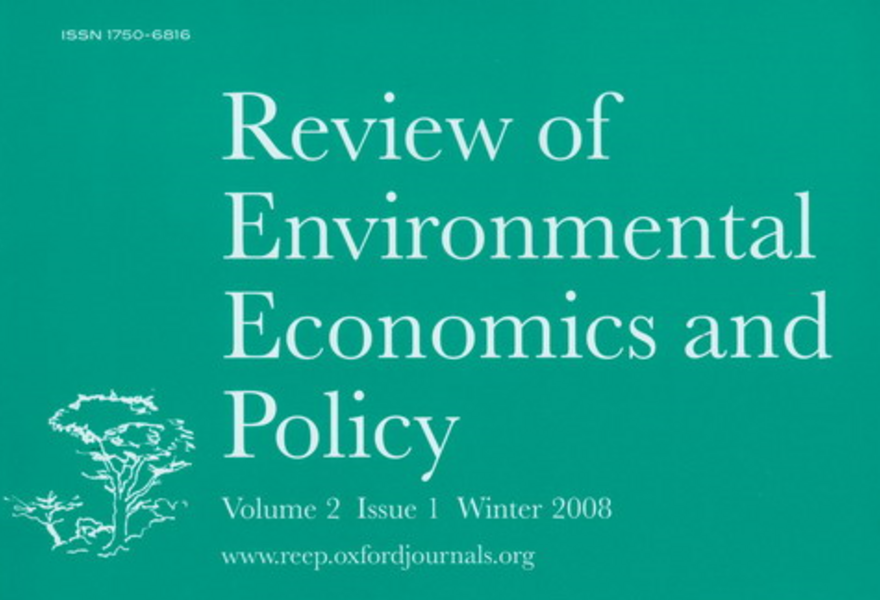MCC director becomes co-editor of important economics journal
Ottmar Edenhofer has been nominated as one of the editors of the influential scientific journal “Review of Environmental Economics and Policy” (REEP).
“Review of Environmental Economics and Policy” aims to fill the gap between traditional academic journals and the general interest press. It provides a widely accessible yet scholarly source for the latest thinking on environmental economics and related policy. REEP publishes a range of material including symposia, articles, and regular features.
“Review of Environmental Economics and Policy” has a very high impact factor: In 2014, REEP had a 2-year impact factor of 3.097 making it on rank 17 among 333 economics journals. This means its performance is among the top 5 Environmental Studies journals and among the top 20 Economics journals. It is also the official journal of both AERE and the European Association of Environmental and Resource Economists (EAERE).
“I feel honored about this great opportunity to serve at the editorial board of such a journal with utmost importance that symbolizes the interdependency between the environment and economics,” says Edenhofer. “As a co-editor I look forward to supporting the editorial board in providing vital scientific insights for decision makers.”
Articles and symposia published by REEP are commissioned by the editorial board. Carlo Carraro from the University of Venice and Fondazione Eni Enrico Mattei (FEEM) is the editor. Co-editors are Charles D. Kolstad from Stanford University and Richard G. Newell from Duke University – and now Ottmar Edenhofer, Director of the Mercator Research Institute on Global Commons and Climate Change (MCC), in recognition of his outstanding scientific achivements has become the third co-editor. He replaces Denny Ellermann from the Massachusetts Institute of Technology (MIT).
REEP is modeled after the “Journal of Economic Perspectives”, but with an environment and resources focus. The aim is to serve both the academic environmental and resource economics community and the community of professional economists outside of academia, primarily in policy positions in government and NGOs. Rather than considering unsolicited finished manuscripts, as most scholarly journals do, the approach at REEP has been to solicit ideas from the community at large in the form of short proposals for articles or symposia.






